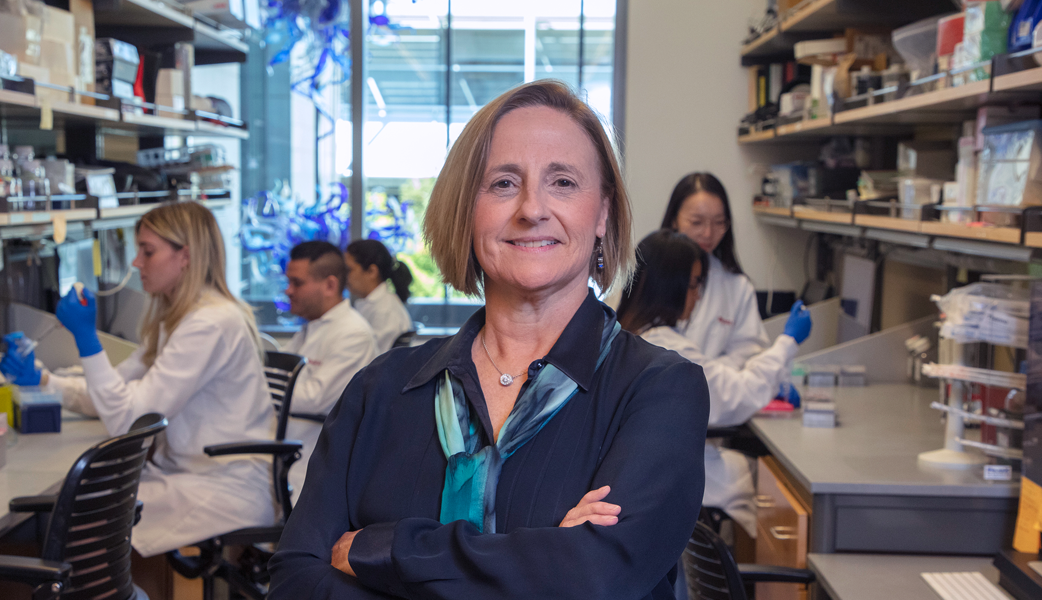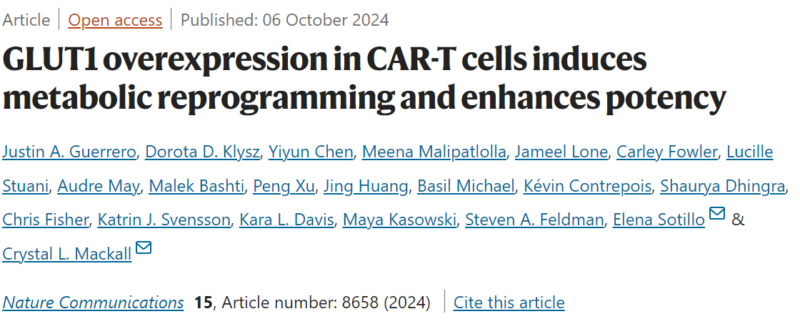
Imagine giving your immune system’s cancer-fighting cells a powerful energy boost to take on tumors – Parker Institute for Cancer Immunotherapy
Yan Leyfman shared a post by Parker Institute for Cancer Immunotherapy on LinkedIn, adding:
“Pioneering work from Dr Crystal Mackall and team from Stanford University School of Medicine.”
Parker Institute for Cancer Immunotherapy shared on LinkedIn:
“Imagine giving your immune system’s cancer-fighting cells a powerful energy boost to take on tumors. That’s exactly what researchers at Stanford University School of Medicine have achieved. Led by Crystal Mackall, MD, Director of the PICI Center at Stanford Medicine, their new study published in Nature Communications reveals how increasing glucose uptake in CAR T cells can enhance cancer immunotherapy, improving CAR T cell function and antitumor potency.
By overexpressing GLUT1, a glucose uptake protein, the team effectively reprogrammed CAR T cells, providing them with a crucial metabolic advantage. This reprogramming led to:
→ Enhanced metabolic capacity: Increased glucose uptake fuels both glycolysis and oxidative phosphorylation, giving CAR T cells more energy for anti-tumor activity.
→ Increased persistence: GLUT1 overexpression reduces T cell exhaustion, allowing engineered cells to maintain their killing capacity longer within tumors.
→ Optimized T cell differentiation: The metabolic shift promotes differentiation of Th17 cells, a T cell subset that showed enhanced anti-tumor activity in this study.
→ Enhanced resilience: Improved metabolic pathways boost CART cells’ resistance to oxidative stress in the tumor microenvironment.
These findings highlight the critical role of metabolism in immune function and offer a novel way to engineer more potent, persistent CAR T cells using a naturally occurring glucose transporter. This opens new avenues for optimizing cell therapies and could pave the way for more effective cancer treatments. Congratulations to Dr. Mackall and team!
Read the full study.”
GLUT1 overexpression in CAR-T cells induces metabolic reprogramming and enhances potency
Authors: Justin A. Guerrero, Dorota D. Klysz, Yiyun Chen, Meena Malipatlolla, Jameel Lone, Carley Fowler, Lucille Stuani, Audre May, Malek Bashti, Peng Xu, Jing Huang, Basil Michael, Kévin Contrepois, Shaurya Dhingra, Chris Fisher, Katrin J. Svensson, Kara L. Davis, Maya Kasowski, Steven A. Feldman, Elena Sotillo, Crystal L. Mackall

Yan Leyfman MD, is the Co founder and executive director of MedNews Week. He is also the Medical correspondent at OncLive. He is also the Executive CommitteeAlejandro Aballay Member at Music Beats Cancer. He is a Clinical Researcher at Icahn School of Medicine at Mount Sinai. His research interests include oncology, Immunooncology, Cellular Therapy, and Immunotherapy.
More posts about immunotherapy on oncodaily.com
-
Challenging the Status Quo in Colorectal Cancer 2024
December 6-8, 2024
-
ESMO 2024 Congress
September 13-17, 2024
-
ASCO Annual Meeting
May 30 - June 4, 2024
-
Yvonne Award 2024
May 31, 2024
-
OncoThon 2024, Online
Feb. 15, 2024
-
Global Summit on War & Cancer 2023, Online
Dec. 14-16, 2023
